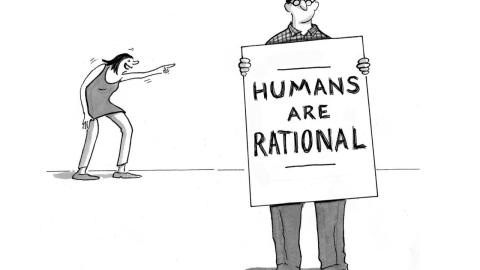Taking Liberties With Workable Liberty

1. Our way of life takes liberties with human nature. It uses Enlightenment ideas about reason which Samuel Hammond says psychologists know are “veryunrealistic” (if not laughable).
2. Hammond’s essay on liberalism (=workable liberties sought by lefties and conservatives) makes many crucial points, but isn’t entirely realistic about reason’s role.
3. Key principles of workable liberty are discovered, not invented. For instance, Hammond says, church/state separation and multicultural religious toleration were discovered in 1590s India under Islamic rule. And in 1640s Europe after many wars. (Aside, the supposed “failure of multiculturalism”isn’t universal).
4. Certain behavioral rule patterns (like the Golden Rule, or property rights) are discoverable by any perspective-taking game-theoretic thinking.
5. Game theory enables “mathematical…ethics” with patterns as provable as geometry. And like geometry, game theory takes teaching (try rediscovering Euclid). But cooperation-preserving game theory matters far more than geometry.
6. Hammond mentions the badly taught Prisoner’s Dilemma game. If the strategy labeled “rational” produces bad results, is it rightly called rational? That the Golden Ruled or god-fearing beat “rationalists” suggests we need to rescue “rationality.”
7. “Experts play a vital role” says Hammond. Yes, but only if they’re properly motivated. If experts (or leaders) aren’t loyal to something above self-gain, like the public good, they’re buyable and unreliable (see Plato on greed-driven politics, + original idiocy).
8. Hammond feels that “reason can help establish… cooperative norms.” But they’re also established, transmitted and internalized emotionally (see paleo-economics). Social emotions evolved partly for cooperation, as did language (we’ve got evolved social cooperation rule processors, akin to our tacit grammar rule processors).
9. Darwin saw that in humans workable cooperative norms work like natural-moral selection. Your way of life discovers them, or it dies out (see needism, + negative telos).
10. Hammond advises “reason and persuasion, not fear-mongering or other emotive strategies.” But persuasion often requires emotion (see Aristotle’s rhetoric). The trick is to recruit emotions for “good,” not to ignore them (see Plato’s emotive Chariot, + facts versus fears).
11. Many besides psychologists know that the Enlightenment’s reason-reliance is laughably unrealistic. Only the unobservant or “experts” educated into “rationalist delusions” or “theory induced blindness” (like model-mesmerized economists) could believe otherwise.
12. Some Enlightenment thinkers understood; Hobbes—>“Reason is not…born with us…but attained by industry,” Hume—>“Reason Is and Ought Only to Be the Slave of the Passions:”
13. But less realistic ideas won, and “Enlightenment errors,” though unempirical, still underpin democracy and economics.
14. Three unempirical “Enlightenment errors,” rationalism, individualism, and hedonism, are particularly seductive because they’re partly truth. However their elegant oversimplifications exclude much that matters. They’re typically empirically complex compositions hybridized with their opposites (emotional and relational rationality, self-deficient individualism, painstaking mattering and meaning-seeking).
15. No workable liberty can permit freedom to harm what your community depends on. Yet “logic” that pits self-interest against collective self-preservation lurks among the market-mesmerized.
16. Ways of life built on unempirical views of emotions or reason aren’t sustainable. Hammond makes progress by using empirically sounder psychology (e.g., mentioning System 1 + System 2). But long-lived liberty requires “behavioral politics” and “better behaved behavioural models.”
—
Illustration by Julia Suits, The New Yorker cartoonist & author of The Extraordinary Catalog of Peculiar Inventions





